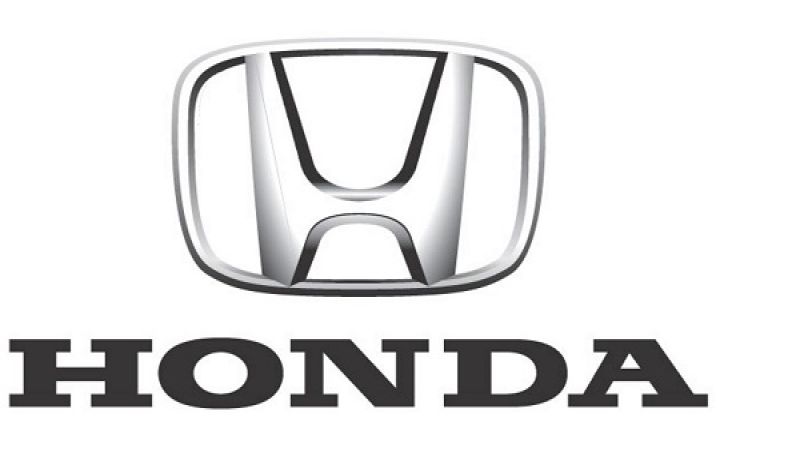As an automotive journalist, this guy would just assume never read about or report on an automotive part or component recall. But, in the case of Takata Air Bag, the news just keeps on coming.
With Takata finally stepping up to the mic and announcing the scope of this monster, now involving 30,000,000 + vehicles, and 10 automakers, American Honda announced an expansion of their ongoing airbag recall measure, and what the company is doing for impacted consumers to help facilitate the inspection and subsequent replacement of the (possibly) defective airbag component.
Honda’s recall is expanded to 6.28 vehicles
As of May, 28. 2015. that’s an additional 350,000 vehicles included in Honda’s extraordinary preventative recall measure. Note: It will take time for Honda to identify this latest round of impacted vehicles. However, according to A.H.M., no Honda or Acura car or light truck manufactured later than 2012 is included in the recall.
Read what Honda’s doing for consumers
As earlier announced by Torque News, the dealer service department inspection and subsequent replacement of the defective part is at no charge to the owner of the recalled vehicle. Furthermore, Honda has arranged through participating dealers a loaner car program for impacted consumers without interim transportation. As of this posting Honda claims a repair rate of 50,000 vehicles per week, and little to no backlog as to model specific replacement parts.
American Honda Motors further reports that multiple airbag component manufactures have been brought on board to help facility an accelerated and relatively seamless recall experience for Honda owners. We know one thing for sure, this car will not be included in the airbag recall.
Will this be the final airbag related recall, and is my car on the list
The following excerpt is from Honda’s announcement of May 28, 2015: The specific VINs associated with the approximately 350,000 vehicles we are adding are in the process of being identified, verified and uploaded, so customers should continue checking their vehicles' current recall status by visitingwww.recalls.honda.com for Honda owners or www.recalls.acura.com for Acura owners.
Customers may also call 1-800-999-1009 for Honda or 1-800-382-2238 for Acura, and press option 4. It may be a few weeks before all vehicles are uploaded, so customers are urged to continue checking.
Please know that Honda is working diligently, on many fronts, to determine a root cause associated with Takata airbag inflator ruptures. The safety of our customers remains our top priority, and we will not rest until this matter is fully resolved.
Overall Summary of All Models Affected by One or More Takata Airbag Inflator recall or SIC (certain specific models only):
2001-2007 Honda Accord
2001-2005 Honda Civic
2002-2006 Honda CR-V
2003-2011 Honda Element
2002-2004 Honda Odyssey
2003-2008 Honda Pilot
2006 Honda Ridgeline
2003-2006 Acura MDX
2002-2003 Acura TL
2003 Acura CL
2005 Acura RL
Bruce T. Smith
Senior Vice President, Parts, Service, Technical, Export & Auto Operations
American Honda Motor Co., Inc.
On a personal note: Please take a moment to check you vehicle VIN # with Honda and Acura. As we hope this to be the final expansion of the largest product recall in the history of the United States. Who knows, only time will tell.
Set Torque News as Preferred Source on Google












Comments
Good day Parks. Excuse, if I
Permalink
Good day Parks. Excuse, if I get a mite long winded on this subject. Let me first make some general statements. When buying a car, nobody is happy about a recall, not the Mfg., not the dealer and most certainly and probably to the greatest extent, not the consumer. There are some measures the consumer can take to mitigate the chances of purchasing a vehicle that will end up being recalled, or a problem child, (not in this case). First and foremost, do some due diligence and homework about the car you are purchasing and the reliability history both of the model and the Brand. Second, it may not be a good idea to purchase a 1st Model year and wait a year or 2 in. However, even doing so does not guarantee one a trouble or recall free experience, it just improves the odds in the consumer's favor a mite. That being said, in reality, it is amazing there are not more recalls when you consider the complexity and shear volume of the cars being manufactured. There are allot of people who feel that the QC involved with the manufacture of cars is lacking. There is an economic consideration here. If every car, and all the components were checked before leaving the factory in such a way that recalls were virtually unheard of, the price of the car would skyrocket due to the manpower and time necessary to do so. Time is money. All it takes is one bad batch of bolts to sneak through, or a glitch on the assembly line and there may be a problem. Now, when one considers the complex electronics, and mechanical components that go into making the most basic of Models, as I say, it's amazing that there are not more problems. Now to the Takata fiasco in general. Heads should roll, (literally) over at Takata. Not so much that there was a problem with the airbags, but for the way Takata handled the problem and fought everyway they could to avoid what has long been known to be an issue. It is, "Unconscionable". The car manufacturers are not innocent either. Instead of the primary concern being that of the consumer, it seems that they waited for the litigation to run it's course, in order to mitigate their own costs and responsibility to the customer. If they could get Takata to provide the replacements, as opposed to finding another supplier, it would significantly reduce their costs involved. From the manufacturers point of view, it makes economic sense. From the consumers point of view makes no sense at all and rightfully so. After all, the car was purchased from the car Mfg. not from Takata. What makes this so nefarious is it involves the very component that is specifically designed to provide the driver with some degree of safety and security. Instead, it seems, that it turns out to be a potential shotgun pointed at one's face. "Unconscionable". It's not like the car Mfgs. did not see the writing on the wall for years. All in all a sad commentary on the industry as a whole, (not to mention NHTSA). The system just broke down all over. In the long run, except for those injured or worse, this looks like it may be a wake up call to the industry and in a convoluted way maybe a good thing. It seems the Manufacturers have acquired a bit more, "Social conscience" as evidenced by recent recalls by many Mfgs.that were identified quickly, and fixed quickly, done through voluntary recalls. I can't help but feel the Takata situation has something to do with that. Obviously this is not done, "Through the goodness of their hearts", a good part of it, I think, is that they realize it makes more economic sense to grab the bull by the horns and fix it before there are millions of cars on the road with the problem. They realize that the longer it goes, the greater the cost will be to fix and that sooner or later the problem will be discovered, so let's address it now while we can maintain a handle on it and mitigate our loses. Just good business sense that also benefits the consumer. Now to my thoughts on Honda's response. In all fairness I believe Honda dragged it's feet on this as well, and being a Honda guy, I find that to be disappointing. However, it seems that at this moment in time, they have made up their mind to address this ASAP and do what they can, to do, "Right" by their customers. My Brother has a CR-V on the list. He was told they expect to have the replacement parts early next week, but if they don't, they will supply him with temporary transportation 'till they can do so. So, although like other Mfg. that used Takata's airbags, it seems to me that Honda waited too long, they have now stepped up. Better late than never. My personal experience with Honda/Acura regarding warrantee work in the past, (not on this issue), has been a very good one. I did not have to fight tooth and nail. I was treated with respect and concern, both by Honda and the dealer. The problems I had were addressed in a timely manner and fixed on the first go around. I've had warrantee issues with other Mfgs. and was left frustrated if not out and out abandoned. That is a good part of the reason that I am kinda fonda Honda.
Hopefully the industry has learned a lesson here and it will be the last problem of its kind. Time will tell. All Best Parks.
Good day JeffS. You've
Permalink
In reply to Good day Parks. Excuse, if I by JeffS (not verified)
Good day JeffS. You've covered the bases here with your thought provoking commentary. I believe I'll leave it at that. As you know I've covered the issue for well over a year. When looking to the record I find an airbag component that may have exceeded its shelf life. Unfortunately, out of sight, out of mind. The sad thing here is that few if any of us give thought to an automotive component that doesn't require service. Perhaps the "fix" here is for manufacturers to add safety components to the service manual check and inspect list. After all, the "failed" components in this story are no less than 10 years old. Wishing you a fantastic trouble-free weekend.
You got me to thinking. If
Permalink
In reply to Good day JeffS. You've by Parks McCants
You got me to thinking. If memory serves, (sometimes not so well) I do recall reading in the manual of one of my cars with airbags, (early on when airbags became mandatory), that a 10 year inspection of the system was recommended. I also recall reading, somewhere, that the safe, "shelf" life, or in other words, safe operating life span, of an airbag system is about 10 years. I think there is 2 concerns. The degradation of contacts, (although my understanding is that most of the contacts used in the system are gold plated, for that very reason). The second is the possible degradation of the propellant used to inflate the airbag. I can't remember if the concern is that it will become more volatile, or lose its volatility. I can't imagine how that would be checked. If this be the case, (I'm not sure, there may have been improvements in this regard since my recollection) then an air bag replacement along the way may be called for. If I am not mistaken, current airbag design makes it a throwaway and replace with a complete unit as opposed to rebuilding, (not talking of once it goes off, then the entire assembly need be replaced for obvious reasons). This makes replacing the airbag rather expensive. If the primary concern over aging is with the propellant itself, maybe the design should incorporate a means of just replacing the, "Canister" as opposed to the entire unit and include as required maintenance at the 10 year mark, or whatever the safe operating time frame may be. In any case, this is a safety system that one doesn't want to be marginally dependable. Whatever need be done to make it virtually completely dependable, regardless of the age of the vehicle, should be done. The problem is, as you elude to, I do not think that definable standards have been set, or at least not relayed clearly to the consumer. I have pontificated enough on this, again, excuse me. Thanks Parks, have a good weekend as well, (I get the feeling you never really, "punch out" from work).
Right you are JeffS. More of
Permalink
In reply to You got me to thinking. If by JeffS (not verified)
Right you are JeffS. More of a kind obsession than what one refers to as work.